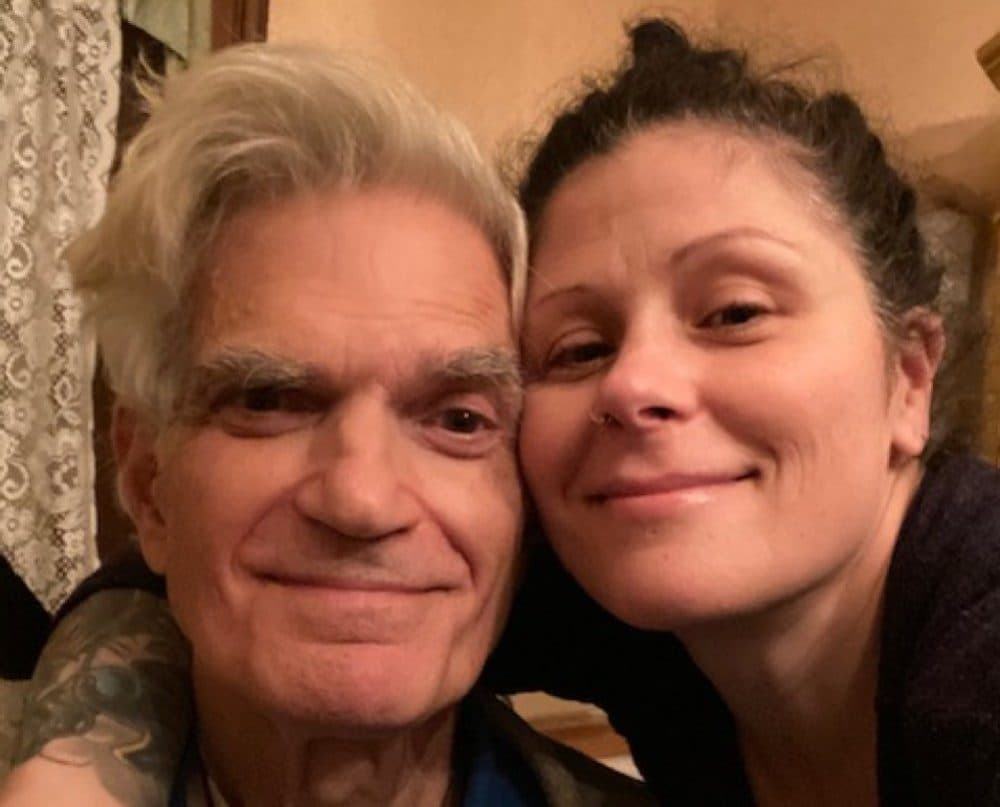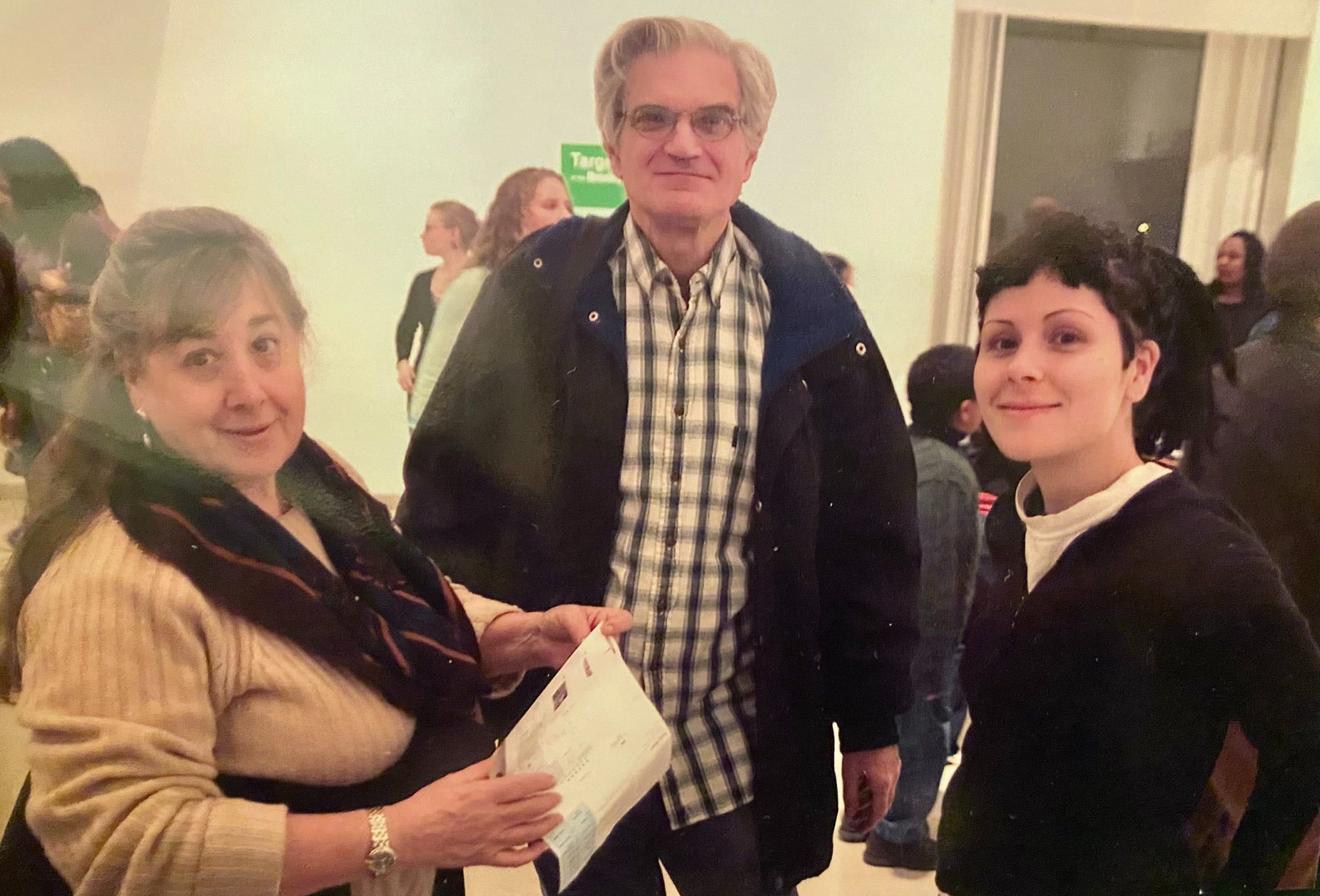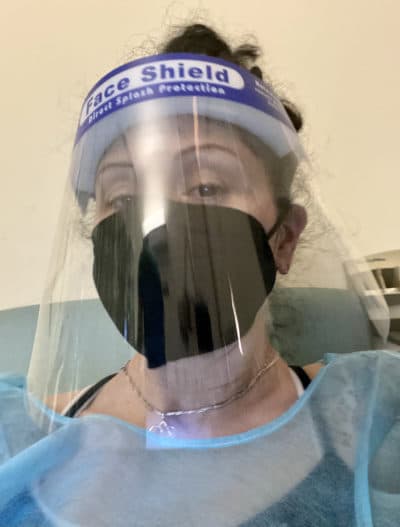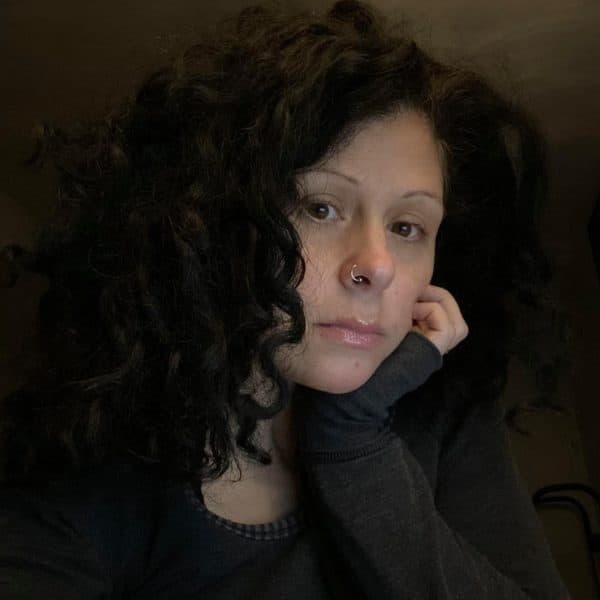Advertisement
Commentary
How COVID Helped Me Show My Parents I Loved Them

“Can I help, Mom?” I’d always ask, hoping she’d say no, yet feeling a little insulted when she did. During the pandemic, I offered more.
“We can’t take the risk, Aimee,” my mother said, while my father listened in on the extension in the bedroom. “If one of us gets sick, it will kill us both.”
But when my father’s health took a dramatic nosedive in January, it didn’t matter that I lived 200 miles away, or that we were all on lockdown. It didn’t matter that I had a job and two children — one disabled. My parents needed me.
Once I arrived, I took stock. Parkinson’s. Glaucoma. Depression, age-related confusion. I saw a man barely able to stand, with difficulty swallowing, no appetite, insomnia, anxiety, agitation and a general lack of interest in anything. I barely recognized my own father. Something major was wrong.
My father’s neurologist chalked it up to a medication imbalance and adjusted his Parkinson’s medicine. He added a strong antidepressant.
I took a COVID test before going home to Massachusetts for a few days. My mom decided to test, too. “I didn’t know it would be so easy!” she said. When the results came in, I was negative, as I expected.
Two days later, my mother called again. My father had fallen. “He’s surrounded by pillows,” she said. “He’s very comfortable.” But she couldn't get him up by herself.
“I’m coming back now.”
“Oh, also,” she said. “I’m positive. How can I be positive?”
I barely recognized my own father.
It was a PCR test; I knew it couldn’t be wrong. What did that mean for me? What had I exposed my family to by coming home? Who would take care of my father? Now what?
This time, I entered the apartment wearing gloves and two KN95 masks, one on top of the other. My mother crumpled. “I know, I know,” she whined. “I’m Typhoid Mary.” But she remained asymptomatic, which meant the diagnosis didn’t truly sink in.
“I’m just going to run to the — ”
“Mom, you can’t run to the.”
We had that conversation 10 times a day. I took care of my father, cleaned every surface my mother touched and ran all the errands. My mother went stir crazy from boredom and worry.
I’d been dozing for an hour one night when my father woke up moaning to use the bathroom. I was proud when we made it. On the way back to bed, he weakened and we both crashed to the floor. It was then, with my father’s body inches from mine, that I noticed how bony he’d become, and that my masks were not on my face. But I could not leave him.
Advertisement
'What’s happening to me?' His voice was a whisper.
We spent hours lying on the hardwood floor. I held his hand and told him I loved him. I sang to him, and looked him up and down, noting all the scrapes and bruises. So many falls.
In a moment of lucidity, he asked why we were there. “What’s happening to me?” His voice was a whisper. “Why am I so weak?”
“Hey, Daddy,” I said softly into his ear. I knew he heard me.
“Remember when I was in the hospital that time and you flew across the country to save me?” I didn’t say "suicide attempt."
He grunted.
“You were there for me. I am going to do the same for you. We’ll find out what’s happening to you, Daddy. I’ll do whatever it takes. And I’m always going to be there for you.”
He grasped my hand and closed his eyes.
“You wanna go back to sleep, Daddy?”
He nodded, almost imperceptibly. His grip on my hand loosened and he slept, though not for long.

This was not about the medications, his neurologist said now.
“Maybe he just needs to eat more,” my mother said.
I consulted online Parkinson’s groups. "Have you had him tested for COVID?" one of the members asked. But how? I wondered. I went again to test myself. Still negative.
He needs the hospital, I finally decided, overriding my mother. We’re going.
“Daddy, can you give me a big hug?” I steeled myself, bent my knees, and hoisted his debilitated 6’2” frame into a wheelchair. I brought him to the hospital and learned that he, steady all his life at 185 pounds, now barely weighed 130.
He was tested for everything. I watched the doctor pause outside the door to put on a gown, gloves and a face shield over her N95 mask before coming back in. I knew exactly what she would say before she said it.

“Sir, you have COVID.”
I was surprised I was allowed to visit him.
“You’re an angel,” my mother said on the phone.
It was stiflingly hot under two masks, a face shield and a gown. My father didn't recognize me. So I talked, endlessly.
“Daddy, it’s Aimee. Listen for my voice. Aimee’s here with you.” Sometimes, he responded. Other times, he was afraid of me. He eyed my hands suspiciously, in their blue latex gloves. “Put that down!” he said more than once.
“Oh, those are my hands, Daddy. I have on gloves.”
“Why?”
“You have COVID, Daddy. Remember, we were going to find out what was making you so sick? Now we know.”
“Oh.”
I held out for five days like this. On the fifth evening, when I left the hospital I called my husband and was hit with a dizzy spell so bad I had to sit down on the sidewalk.
“You’re starving,” he said. “You haven’t eaten all day. Order a good dinner when you get back to your room.”
When it arrived, I could neither smell nor taste it. Now it was my turn to have COVID, alone in a hotel. My mother was feeling fine but quarantined at home, and my father was deteriorating, afraid and alone, ten blocks from my room.
While I battled COVID, my father persevered. For a moment we thought —
We thought.
More from WBUR
But then he was transferred to a nursing home where we were not allowed to visit, where he deteriorated rapidly, and my mother, now released from quarantine but completely in the dark about her husband of 51 years, cried because she knew he was never coming home.
I got better and together we made difficult decisions: not to intubate, not to place a feeding tube. When the nursing home called in the middle of the night to say he’d gone into respiratory failure and that he’d been sent by ambulance back to the hospital, my mother did not hesitate to call to wake me. I’d been sleeping with my phone under my pillow, earbuds in my ears, so I wouldn’t miss her call.
We were ready to say goodbye, together.
Editors' note: An earlier version of this essay won honorable mention in The Fountain's 2020-2021 essay contest.
